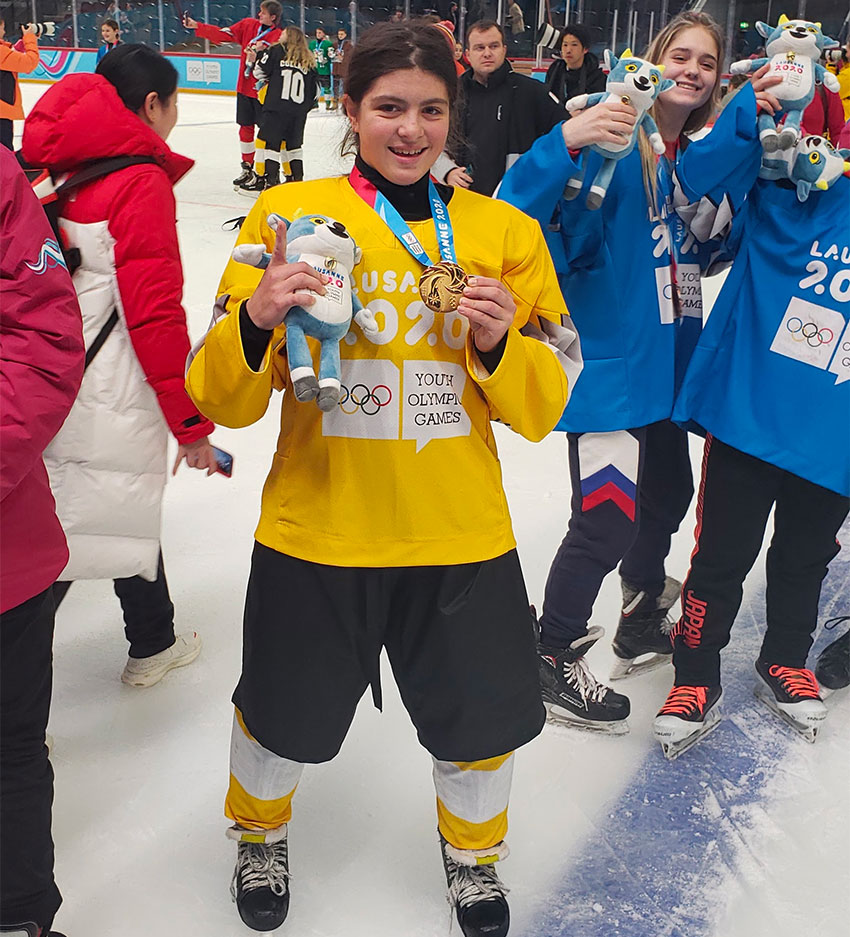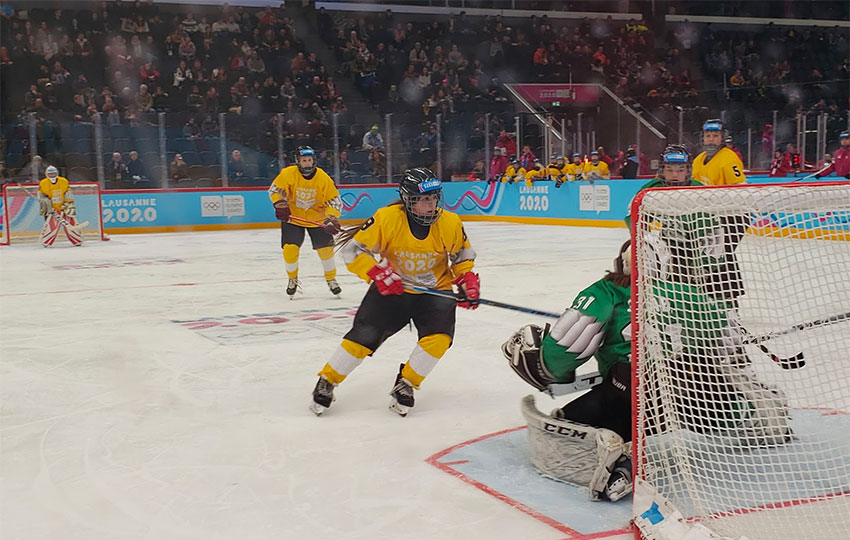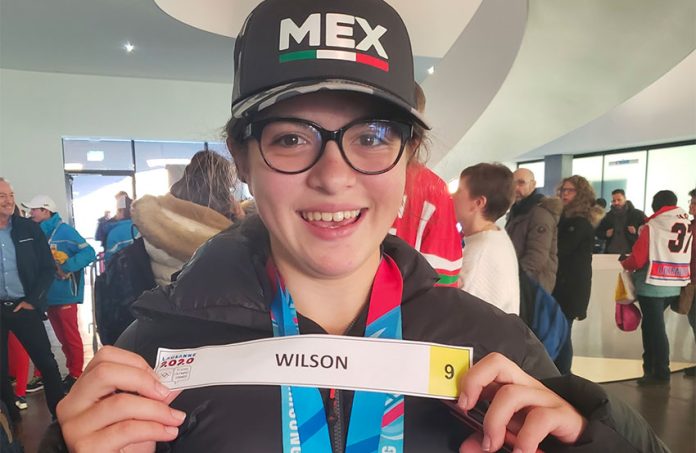From the tender age of 3 Luisa Wilson was already cutting her first lines in the ice. Learning how to skate with a hockey stick in hand, she was instructed by her father Brian, a coach and life-long hockey enthusiast. She grew up as the sole girl playing among boys in the small world of federation hockey in Mexico.
“When I was about 8 or 10 I wanted to quit hockey because I realized girls couldn’t play in the NHL [National Hockey League] and I got a bit sad,” she says. But after some cajoling from her dad she decided, “Why should I quit a sport I really like?”
She stuck to it, moving from rink to rink in Mexico City, ever looking for a better coach, more time on the ice, better facilities. She liked to barrel through the boys she played against, pink helmet tightly fastened, body-checking them one by one. They secretly called her the pink assassin.
But Mexico is tough for a hockey-loving girl. Owners of ice rinks make most of their money on public skating, and hockey teams get the dregs of the time slots. Tournaments are not as regular as in other countries and the small pool of teams meant that the existing tournaments were relatively small and short. Luisa’s brothers were also falling in love with hockey and it reached a point where the three siblings wanted to play a lot more than they could with what was available in Mexico.
So, in 2017, Luisa, along with her mom and brothers, moved back to where her father grew up, outside of Toronto, Canada, where hockey is a national sport. Instead of playing 40 games a year they could now easily play 50 to 60.

“My grandparents would say we moved for the schools or something, but I know in my heart that we moved for the hockey,” she says, smiling.
In her case it was a bit of both, as she joined a Sports High School – Bill Crothers — that while not allowing her to play hockey for the school team (student athletes aren’t allowed to play their No. 1 sport to ensure fairness for competing high schools), did encourage her to play hockey outside of school. Bill Crothers has also been the gateway to her latest athletic passion – rugby, which she says gives her more of a “killer instinct on the ice” – but she never lost her love for hockey.
Now that the family is binational, going back and forth between Mexico and Canada, when tryouts were announced in March 2019 in Mexico for the Youth Olympics, Luisa’s parents and school both proudly supported her in her quest to play at the international level. The 14-year-old ranked 30th internationally among the hundreds of kids that tried out and was placed on the yellow team (soon to become the Yellow Stars) with girls from Italy, France, the Netherlands, the Czech Republic and other countries across the globe.
“It was pretty cool, but at the beginning it was kind of difficult to communicate with each other,” says Luisa. The team bonded over Bruno Mars and Ariana Grande as they belted their hearts out warming up before each game. “We got really close and were like best friends in a week.”
The girls played to a packed stadium in Lausanne, Switzerland — one of the best parts of the experience, says Luisa — and slowly worked their way to the finals as she watched her Mexican friends and their teams get eliminated one by one. Finally they were one of the two final teams and set out to play before thousands of screaming fans.
In the first half of the January 15 game they were tied 1-1 with the Black team and in the second half Luisa, the team’s forward, scored a second goal. The Black team never recovered, and the Yellow Stars won the gold medal. Luisa became the first Mexican ever to win a medal in any Winter Olympics.

“When I’m really in the game I’m just like ‘don’t get scored on get the puck get it out of here get the girl knock her down,’” she says in a rush. “It’s really quick and just moveyourfeet moveyourfeet moveyourfeet. When I am thinking like that I feel like I’m faster and it’s more fun because I feel like I’m playing better.”
Back home in Canada after weeks of excitement, Luisa is bemoaning the homework she has to do now and the fact that from signing autographs and making history she is going back to being a regular teenager.
“I didn’t think about it at the time, but now I realize that I am going down in the records as the first one [to win a medal] and it was a gold, and that’s really cool.”
Now it’s time to start running, she tells me, so that she can be faster on the ice and she’s honing her crosscheck skills by taking out the biggest girls she can find on the rugby field.
The future holds college hockey and maybe the Olympics again, this time as an adult. But for now, she’s ready for the rest of the hockey season in Canada and tackling that mountain of homework.
Lydia Carey is a regular contributor to Mexico News Daily.
